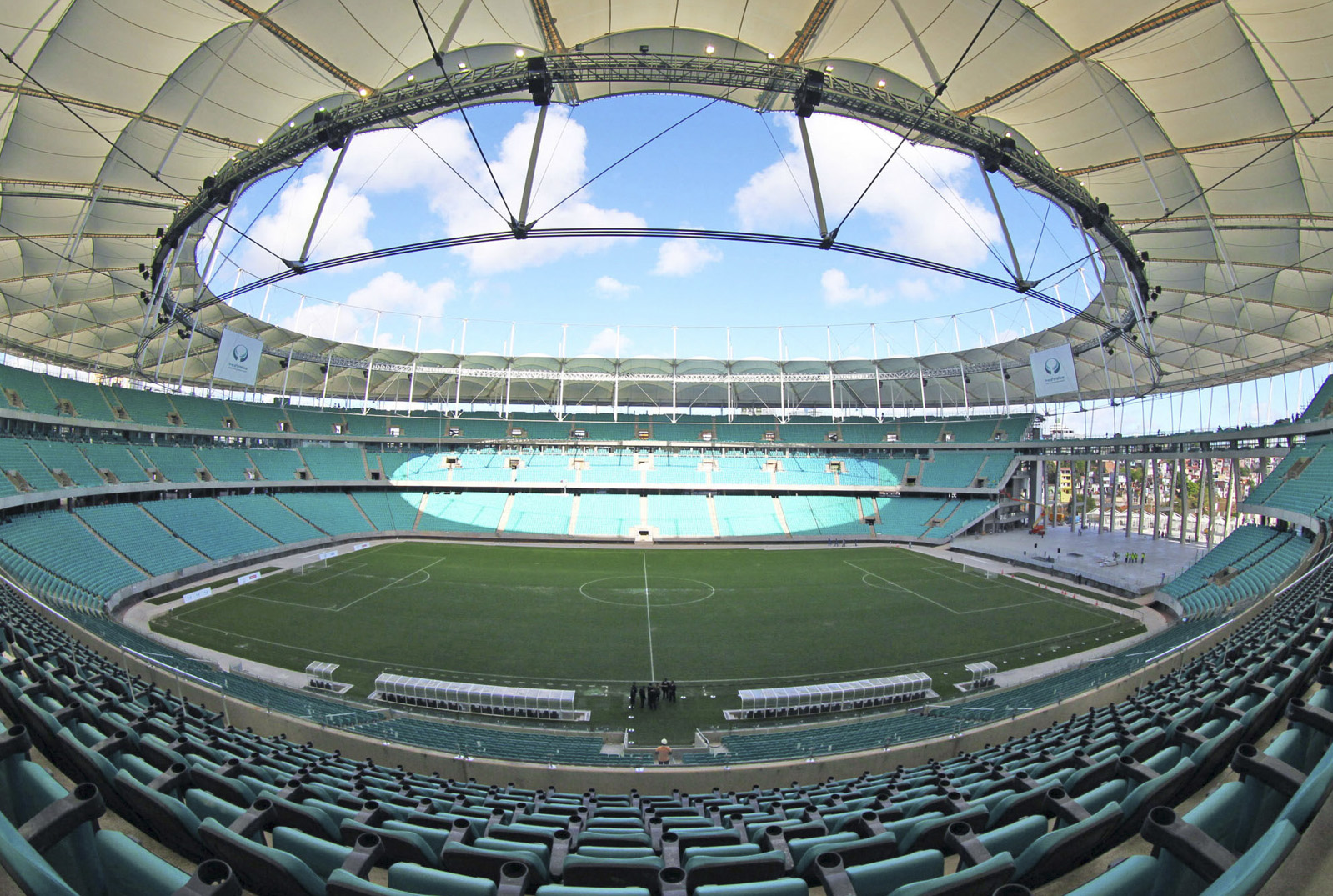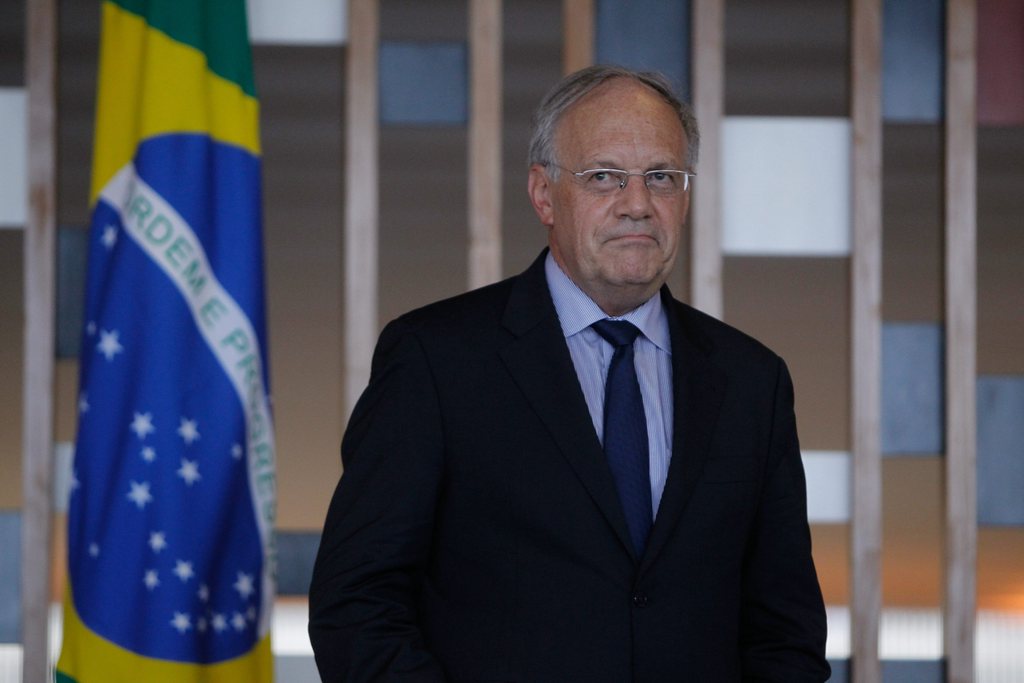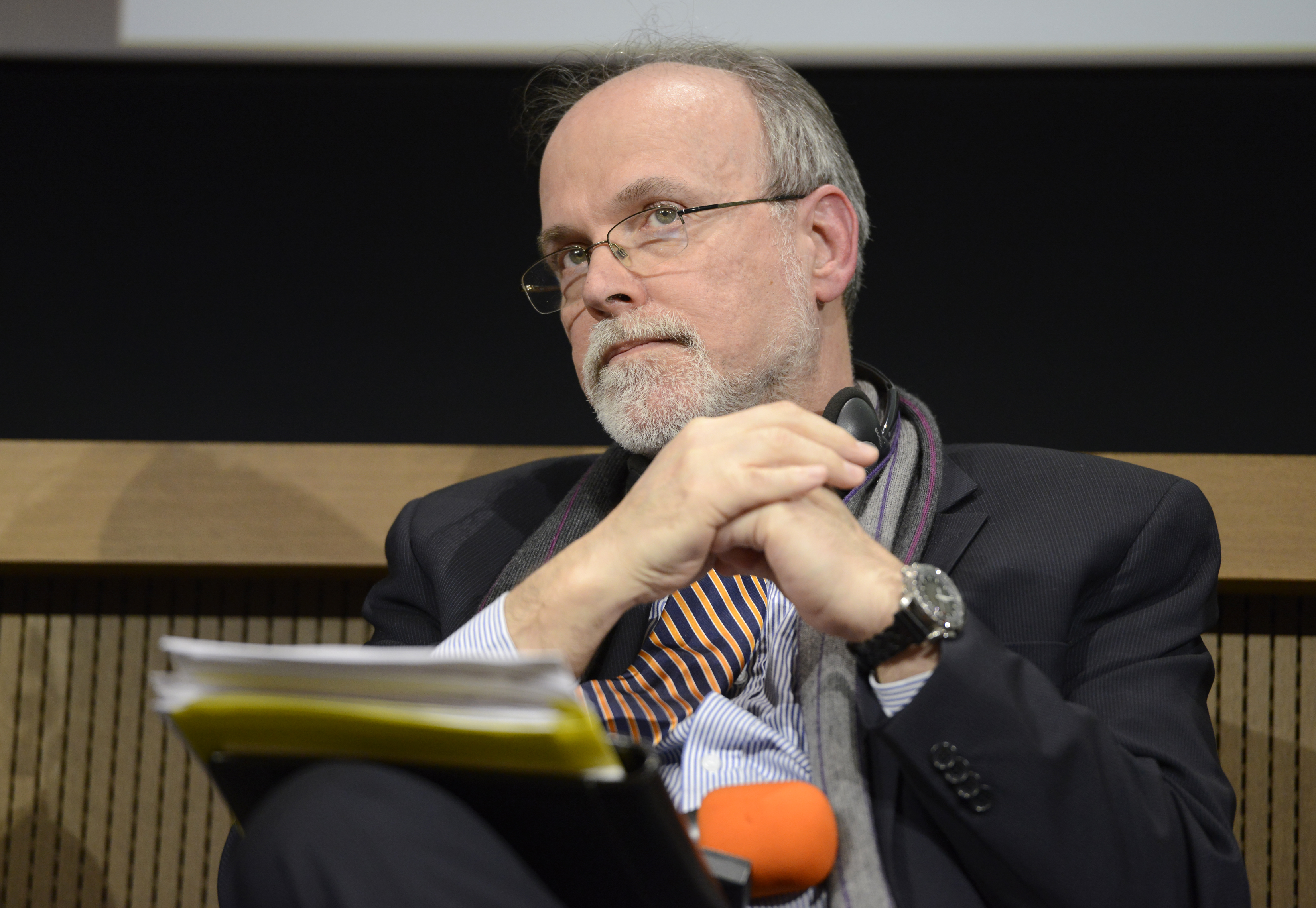Swiss firms enjoy World Cup bonanza in Brazil

In the lead up to the football World Cup and with the massive need for investment, especially in infrastructure, Brazil is featuring on the radar of Swiss firms more than ever. swissinfo.ch looks at some major players who have taken the plunge.
There are currently some 350 Swiss companies active in Brazil. They provide jobs for 106,000 people and have a combined annual turnover of $10 billion (CHF9 billion). Some, such as Nestlé, have a long history in the country; others, such as Sulzer, are more recent arrivals.
In many cases Swiss firms can bring something to areas where Brazilian companies are not so strong, such as machinery, know-how and high-tech as well as quality guarantee.
Most of these companies came to Brazil not just to make the most of the opportunities presented by major sporting events like the 2014 World Cup and 2016 Olympic Games but with a focus on the long-term perspective.
Their areas of activity are quite broad, ranging from construction and engineering, security and finance, to food and luxury goods. Apart from being Swiss, these firms have something else in common: they have managed to get established in a country where economy, politics and tax are difficult.
Relations between Switzerland and Brazil date back to the early 19th century, when Swiss businessmen discovered Brazil as a market for their goods.
14,976 Swiss lived in Brazil in 2012 (of a total population of 200 million).
Brazil is by far Switzerland’s largest trading partner in Latin America. In 2012, Switzerland imported goods – primarily agricultural products, metals and chemicals – worth CHF1.1 billion ($1.25 billion), an 18.3 % increase over the previous year. The value of Swiss exports – primarily pharmaceuticals, chemicals and machinery – amounted to CHF 2.35 billion, a 5.6 % increase over the previous year.
At the end of 2010, Swiss direct investments stood at CHF20.3 billion and some 106,600 people in Brazil were employed by Swiss firms.
(Source: Swiss Foreign Ministry)
Staying in Brazil
Zurich Insurance, which has been present in Brazil since 1982, is the fourth-largest insurance group in the country and is covering the construction of four stadiums – Itaquerão in São Paulo, Maracanã in Rio de Janeiro, Brasília Arena in Brasilia and Fonte Nova Arena in Salvador de Bahia.
The Swiss insurer is involved in several other diverse infrastructure projects connected to the World Cup, Werner Stettler, head of the Zurich subsidiary in Brazil, told swissinfo.ch. On confidentiality grounds he did not want to give details about the value of these contracts.
Zurich, which employs 1,300 people, is also directly and indirectly involved in projects connected to the Olympic Games, such as the construction of the underground train system and renovation work.
The expansion of Zurich began several years ago. In 2008, it took over Brazilian insurance companies Minas Brasil and La Minas Brasil Vida e Previdência. Three years later it bought 51% of the Life and Pensions section of Santander general insurance in Brazil, Mexico, Chile and Uruguay.
“Zurich believes in the possibilities that these countries have to offer,” Stettler said.
In the construction sector, Geobrugg, part of the Aargau-based Brugg Group, is providing the steel structure for the roof in the Maracanã stadium, as well as the protection system for various infrastructure projects connected to the World Cup. Brugg has been present in Brazil for 20 years. The first installations of Geobrugg systems go back to 2004/5.
Maria Teresa Soares, head of the Geobrugg subsidiary in Brazil, confirms that the growth of the company over the past ten years has been gradual.
“There is a big demand for infrastructure work in the country. That’s why Brazil was a priority for our activities and investment,” she said.

More
Optimism grows over Brazil free trade deal
Elctronic key
The Kaba group with headquarters in Rümlang, canton Zurich, opened a subsidiary in Brazil in 1999 and positioned itself in the market for keys, electronic locks for hotels and online control systems for industry and residences.
Kaba is not only involved in big projects connected to the World Cup, but through Shenzhen Probuck Technologies (a Chinese company bought by Kaba in 2013) has got the contract to provide biometric access systems in the Olympic Village in Rio de Janeiro.
“Although our turnover in Brazil is relatively low, we are concentrating our strengths in this market,” said the company’s communications department. A step in this direction was the purchase of Brazilian company Task Sistemas de Comunicação in February, which made it possible for Kaba to build up its distribution network.
Apart from 1,000 hotels, Kaba’s clients include Guarulhos airport in São Paulo, which is undergoing major renovation. Another Swiss company, Sulzer, is also active there; it got the contract for a pump system in 2013. This airport, one of the most used in Latin America, will double its capacity and cater for 60 million passengers a year in the future.
Sulzer is also active in the chemicals sector with Sulzer Chentech. “We’re expecting an increase in energy use (petrol and gas), which will mean an increase in investment in Brazilian refining,” Verena Gölker of Sulzer said.
The matches at the 2014 World Cup in Brazil are expected to be watched by 3.2 billion television viewers worldwide – a record.
Swiss company Host Broadcast Services (HBS) is responsible for the production and broadcast. HBS, part of the Infront Sports & Media Group, with headquarters in Zug, has worked with FIFA for years. The company employs 500 people and is active in ten countries.
During the World Cup, HBS will broadcast some 5,000 hours of programming including games, interviews and material from training camps.
Knives and chocolate
Victorinox, headquartered in Ibach, canton Schwyz, is also looking at new strategies to boost its presence in Brazil. Famous for its iconic Swiss knife, Victorinox opened a branch office there 20 years ago.
“However, this is the first time that we have invested in Brazil to make our brand better known,” the company’s website says. In the coming year Victorinox will develop special products, such as a collection of knives with pictures of Brazil’s best-known tourist destinations.
Nestlé, active in Brazil for 90 years, manufactures Garoto, the best-known chocolate brand in the country. Through Garoto it is sponsoring the World Cup. The company has paid 200 million reais (CHF80 million) to be “official chocolate” of the 2013 Confederation Cup and the 2014 World Cup, the highest advertising spend to date for this brand.
On May 15, road blocks and marches again hit Brazilian cities as groups criticised spending on the upcoming World Cup and sought to revive a call for better public services that swept the country last June.
In April, a poll said less than half of Brazilians were in favour of still hosting the June 12-July 13 tournament, believing it would do more harm than good.
That opinion in the soccer-obsessed nation has come after last year’s widespread street protests during the Confederations Cup, with public anger at money being spent on building stadiums rather than improving healthcare and education.
Despite this, Sepp Blatter, the Swiss president of world football’s governing body FIFA, said the 2014 World Cup would “be the most successful of all time”, though three stadiums and several airports are not ready, while other promised infrastructure has been shelved.
At the end of April, a two-day police strike led to a surge in violent crime in Salvador, one of 12 cities that will host games in the 32-team tournament. Riots also broke out in the tourist hot spot of Copacabana, with gunshots fired, rubbish and at least one car burnt and widespread vandalism reported after residents learnt of the death of someone from their community.
Blatter dismissed concerns and said similar security issues were voiced before the last World Cup in South Africa in 2010.
(Translated by Clare O’Dea)

In compliance with the JTI standards
More: SWI swissinfo.ch certified by the Journalism Trust Initiative

You can find an overview of ongoing debates with our journalists here. Please join us!
If you want to start a conversation about a topic raised in this article or want to report factual errors, email us at english@swissinfo.ch.